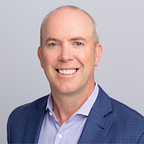Balancing my reading list to reflect my reality
In 1909, when Harvard University President Charles W. Eliot imagined the Harvard Classics, a five-foot shelf of books intended to provide an enlightened education to anyone who read them; he created what was considered a gateway to the essential knowledge of his time. However, like many such collections, it predominantly featured books about men, by men, and largely centered around American and European perspectives.
Naturally, as someone who mostly reads non-fiction books on business, history and society, I looked back at my Audible list of past books and saw that it echoed a similar pattern. And since most of the teams I have been a part of for the last 15 years were predominantly led and operated by women, my reading list seemed out of balance with the world I was living in. I decided that I needed to purposefully expand my literary horizons. With that in mind, I embarked on a project to build a broader list, a “Modern Harvard Classics” of sorts, with the help of ChatGPT.
The Origin Story
My starting point was the recognition of a certain uniformity in my previous book choices. They were insightful, yes, but they spoke from a narrow slice of human experience. In fact, it was my middle daughter, a school teacher, who commented that in her free time she only read books written by women. In her opinion, up until her 20’s when most of her assigned reading was in school, it was mostly all men authors of biographies about American men. To address this, I drew inspiration from Eliot’s concept but through a contemporary lens — one that embraces the rich tapestry of global thought and the voices of those less represented in traditional academic canon.
Choosing a New Path with ChatGPT
I turned to ChatGPT to aid me in this endeavor. Assisted by ChapGPT, I sought to curate a list that broke the mold — gender-balanced and global in nature stretching my brain to see the world in new ways. I worked to ensure a near equilibrium between male and female authors, between American voices and those from other shores. The intention was clear: to shake up the echo chamber in my reading my list and dive into a pool of varied perspectives.
Filling the Shelves
The criteria were straightforward. For every American male author, I sought to add a non-American female counterpart, ensuring a balance not just of gender but of cultural viewpoints. Through the questions I engineered with ChatGPT I also expanded the categories — where the original Harvard Classics might have overlooked subjects like AI, quantum theory, or contemporary business, ChatGPT eagerly filled those gaps.
I went after underrepresented areas, making sure to include titles on environmental science, technology’s societal impact, and current economic theories. My list grew to include books like “Life 3.0” by Max Tegmark and “Doughnut Economics” by Kate Raworth — books that challenge readers to consider the future and their role in shaping it.
Our Modern Day Renaissance
The objective was clear: To assemble a collection that could provide the foundations of a modern-day Renaissance reading list. It’s a collection for those who seek to be well-versed in the arts and sciences, who are as comfortable debating quantum physics as they are contemplating the impact of AI or the subtleties of global economics.
With a 52-book target — one for each week of the year — I aimed to create a guide for a year of transformational reading. From “The Book of Five Rings” about Samurai training (which I’ve recently read and was fascinated by since it was written in the year 1645) to “Educated” by Tara Westover, our list spans centuries and continents.
Looking Ahead
As I share this list on Medium, my hope is that it serves as a springboard for others to expand their understanding and embrace a multitude of narratives. In a world rich with stories and diverse experiences, limiting ourselves to traditional recommended reading lists means missing out on the vibrant conversations shaping our world.
So, as I embark on this year of reading, I invite you to join me. Let’s broaden our perspectives at the same time, one book at a time, and see where this journey takes us. May we all become modern-day polymaths, not just well-read but well-rounded, ready to engage with the multitude of ideas that our global community has to offer.
In closing, let’s remember that the true spirit of an enlightened education lies not in the quantity of books on our shelves, but in the diversity of thoughts they contain and the conversations they inspire.
Happy reading,
Joseph Kopser
P.S. I’ve made a concerted effort to choose books that are widely available in audiobook format, ensuring that these valuable sources of knowledge are as accessible as possible. Personally, I find that audio books are easier to digest as well as providing me the flexibility to work on the move. It’s my hope that these books, which span across different categories and global perspectives, will enrich your understanding and appreciation for the boundless scope of human thought and creativity.
—
Here is the full list of 52 titles, sorted from the oldest to the newest, including their category, title, author, year of original publication, and nationality/country of birth.
Let me know what you think of the list. Drop your drop at the bottom of this medium post or share your thoughts on our LinkedIn post discussion.
As people help me update and transform the list, I’ll update the chart below.
